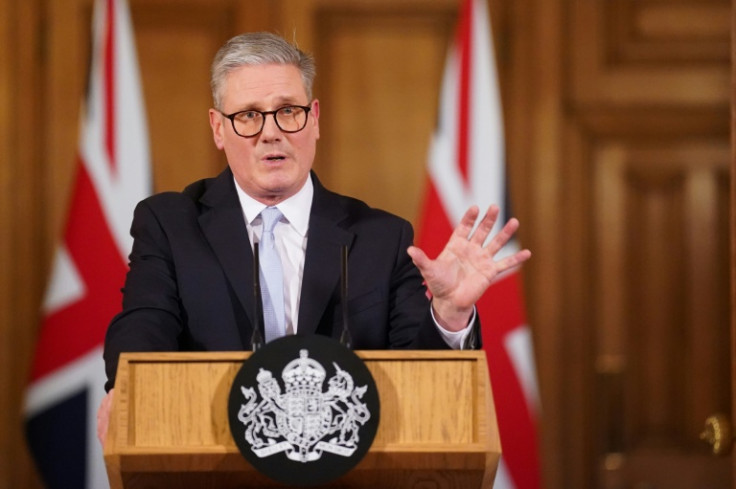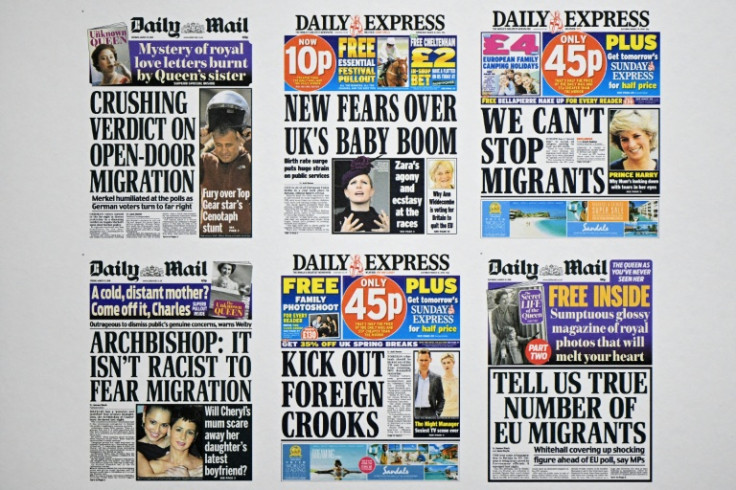
UK Prime Minister Keir Starmer pledged an overhaul of Britain's immigration system on Thursday after revised figures showed net migration hit a record high of 906,000 in 2023 compared with a year earlier.
The Office for National Statistics (ONS) data showed, however, that estimated net migration numbers actually fell by 20 percent to 728,000 in the 12 months to June of this year.
Starmer, whose Labour party swept to power in July, accused the previous Conservative government of running "a one-nation experiment in open borders", with regular migration soaring since Brexit in 2020.
A pledge to "take back control" of Britain's borders was a key plan of the successful campaign to leave the European Union.
"Failure on this scale isn't just bad luck. It isn't a global trend or taking your eye off the ball," he said in a speech from his official Downing Street residence.
"No, this is a different order of failure. This happened by design, not accident," he added, pledging to publish plans "imminently" to cut the number of people coming to the UK.
Migration was a major issue at this year's general election when support for ex-premier Rishi Sunak's party was badly hit by the Tories' failure to deliver on promises to reduce the migration figures, with many voters defecting to the anti-immigration Reform UK party.
It continues to be a political hot potato as Starmer seeks to lay the groundwork for what he hopes will be 10 years in power by regularly criticising the Tories for the inheritance it bequeathed Labour.
The ONS said net migration -- the difference between the number of people arriving in Britain and those leaving -- was 906,000 for the year to June 2023, 166,000 higher than its previous estimate of 740,000.
The data showed that overall some 1.2 million people are estimated to have arrived in the UK in the year to June 2024, while around 479,000 left.
The drop in arrivals is partly attributed to rule changes introduced by the Conservatives in January that restrict the ability of most international students to bring family members to the UK.
The ONS said another factor was "the large number of students who came to the UK post-pandemic now reaching the end of their courses".
The Conservatives won a landslide under the leadership of Boris Johnson at the 2019 election, largely on a promise to bring net migration numbers down and to "get Brexit done".
The party repeatedly promised that leaving the EU and ending the free movement of people from member states would cut numbers.
But regular migration has soared since Britain formally left the EU in January 2020. In 2021, net migration was 488,000.
The Labour government also warned on Thursday that employers who flout visa rules or fail to pay the minimum wage could face lengthy bars from hiring foreign workers.
Measures introduced through the government's Employment Rights Bill -- which is currently making its way through parliament -- would see the length of time companies can be sanctioned double to two years.
Migration minister Seema Malhotra said the government was committed to "ensure those who abuse our immigration system face the strongest possible consequences".
Meanwhile, the number of undocumented migrants arriving in the UK after crossing the Channel on dangerous rudimentary vessels stands at over 33,500, up around 18 percent compared to the same period in 2023.
Numbers are down on 2022.
The UK government meanwhile announced Thursday that it had struck a "world-first security agreement" and other cooperation deals with Iraq to target people-smuggling gangs and strengthen its border security.
The two countries also agreed to speed up the returns of people who have no right to be in the UK and help reintegration programmes to support returnees.
As part of the agreements, London will also provide up to GBP300,000 ($380,000) for Iraqi law enforcement training in border security.









